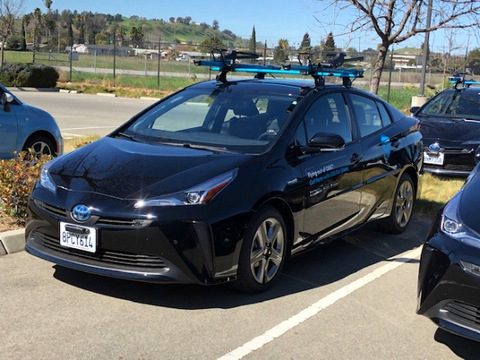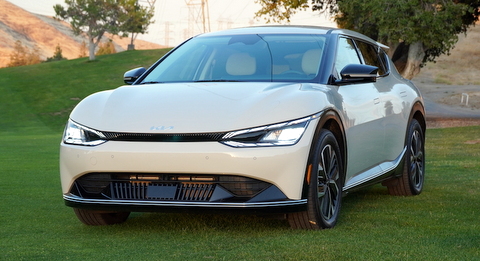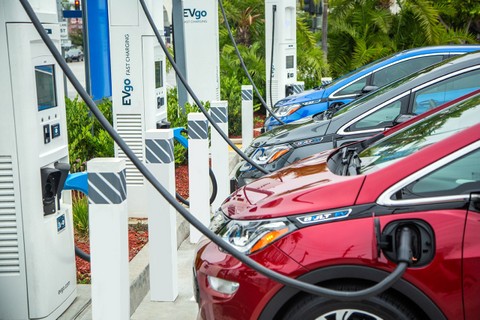New to the World of Electric Cars?
Here’s Everything You Need to Know
This article may contain affiliate links.
As the world transitions towards a greener and more sustainable future, electric cars have emerged as a promising solution to reduce carbon emissions and combat climate change. With advancements in technology and increasing environmental awareness, electric vehicles (EVs) are becoming more popular and accessible to consumers. If you’re new to the world of electric cars and considering making the switch, this article will guide you through the essential information you need to know.
What Is an Electric Car?
An electric car or EV is a vehicle powered by one or more electric motors, which draw their energy from rechargeable batteries. Unlike conventional gasoline-powered cars that rely on internal combustion engines (ICE), EVs produce zero tailpipe emissions, making them environmentally friendly and helping to improve local air quality and reduce global greenhouse gas emissions.
Types of Electric Vehicles

There are several types of electric vehicles available, each with its unique features:
- Battery Electric Vehicles (BEVs): These EVs are entirely powered by electric batteries and do not have an internal combustion engine. They are charged through electric outlets and regenerative braking, offering zero-emission (ZE) driving.
- Fuel Cell Electric Vehicles (FCEVs) also offer ZE driving, using hydrogen to create electricity on board to feed the electric motors (and sometimes a battery) to power the car. No plug-ins needed.
- Plug-in Hybrid Electric Vehicles (PHEVs): PHEVs combine an electric motor with a gasoline engine. They can be charged through electric outlets and can also use gasoline when the battery is depleted. PHEVs offer a limited all-electric range and can switch to hybrid (combined gas and electric) mode when needed.
- Hybrid Electric Vehicles (HEVs): Unlike PHEVs, HEVs cannot be charged externally. They generate electricity through regenerative braking and the gasoline engine, providing increased fuel efficiency compared to conventional cars.
Advantages of Electric Cars
Environmental Benefits
The most significant advantage of electric cars is their eco-friendliness. Using electricity, even if it is generated by burning fossil fuels, creates fewer greenhouse emissions, and zero tailpipe emissions leads to a significant reduction local air pollutants, contributing to cleaner air and a healthier environment.
Lower Operating Costs
EVs have lower operating costs than gasoline-powered vehicles. Electricity is generally cheaper than gasoline per mile, and electric cars require less maintenance due to having fewer moving parts.

Energy Efficiency
Electric motors are more energy-efficient than internal combustion engines. This means that a higher percentage of the energy from the battery is used to power the vehicle, resulting in better mileage.
Quiet and Smooth
Electric cars produce minimal noise compared to internal combustion engine vehicles, contributing to reduced noise pollution in urban environments.
Charging Infrastructure
One of the concerns for potential EV buyers is the availability of charging infrastructure. However, the charging network is continually expanding, with governments, businesses and individuals investing in charging stations. Charging options include:
- Level 1 Charging: This is the slowest option and involves using a standard household outlet. It is suitable for overnight charging for smaller batteries.
- Level 2 Charging: This requires a dedicated charging unit and is faster than Level 1 charging, making it ideal for home, work and public charging stations.
- DC Fast Charging: This is the quickest charging option, found at public charging stations and along highways. It can charge an electric car to 80% in approximately 30 minutes.
Range Anxiety
Range anxiety refers to the fear of running out of battery power before reaching a charging station. With advancements in battery technology, most modern EVs offer a decent driving range on a single charge. Still, it’s essential to consider your daily driving habits, whether you have the ability to charge at home or work, and the availability of charging stations in your area before purchasing an electric car.
Government Incentives
Many governments offer incentives to promote the adoption of electric vehicles. These incentives may include tax credits, rebates, reduced registration fees and access to carpool lanes with a single driver. Be sure to check with your local authorities to see if you qualify for any such incentives.

Insurance for EVs
Insurance for electric cars is widely available, and many insurance companies offer specific policies tailored to electric vehicles (EVs). The insurance coverage for electric cars is quite similar to that of traditional gasoline-powered vehicles, but there might be some differences in premiums and coverage due to the unique characteristics of electric cars. Electric cars have expensive battery packs, and coverage for these batteries might vary among insurance policies. Some insurers offer specific coverage for battery-related issues like degradation, malfunction or damage.
Electric cars have different components and systems than conventional cars, so finding specialized repair shops may be necessary. Check if the insurance policy covers repairs at certified electric vehicle service centers.
If you have a home charging station or portable charging cables, you might want to ensure that these are covered by your insurance policy in case of damage, theft or accidents. Some insurance companies offer green benefits or discounts for electric car owners, promoting eco-friendly choices.
The cost of insurance for electric cars may differ from traditional vehicles. EVs might be more expensive to repair due to specialized parts and technologies, but they may also qualify for discounts due to lower emissions and safety features.
As the electric vehicle market continues to evolve, insurance offerings and policies might change as well. When looking for insurance for your electric car, it’s essential to compare quotes from different providers to find the coverage that best suits your needs and budget. Additionally, keep an eye on any specific insurance trends or incentives related to electric vehicles in your region.
Conclusion
As the automotive industry evolves, electric cars are becoming increasingly popular due to their environmental benefits, lower operating costs and energy efficiency. As a newcomer to the world of electric vehicles, it’s crucial to understand the various types of EVs, the advantages they offer and the charging infrastructure available in your region. By considering these factors, you can make an informed decision and contribute to a cleaner, greener and more sustainable future with your electric car.

1 thought on “New to the World of Electric Cars?”